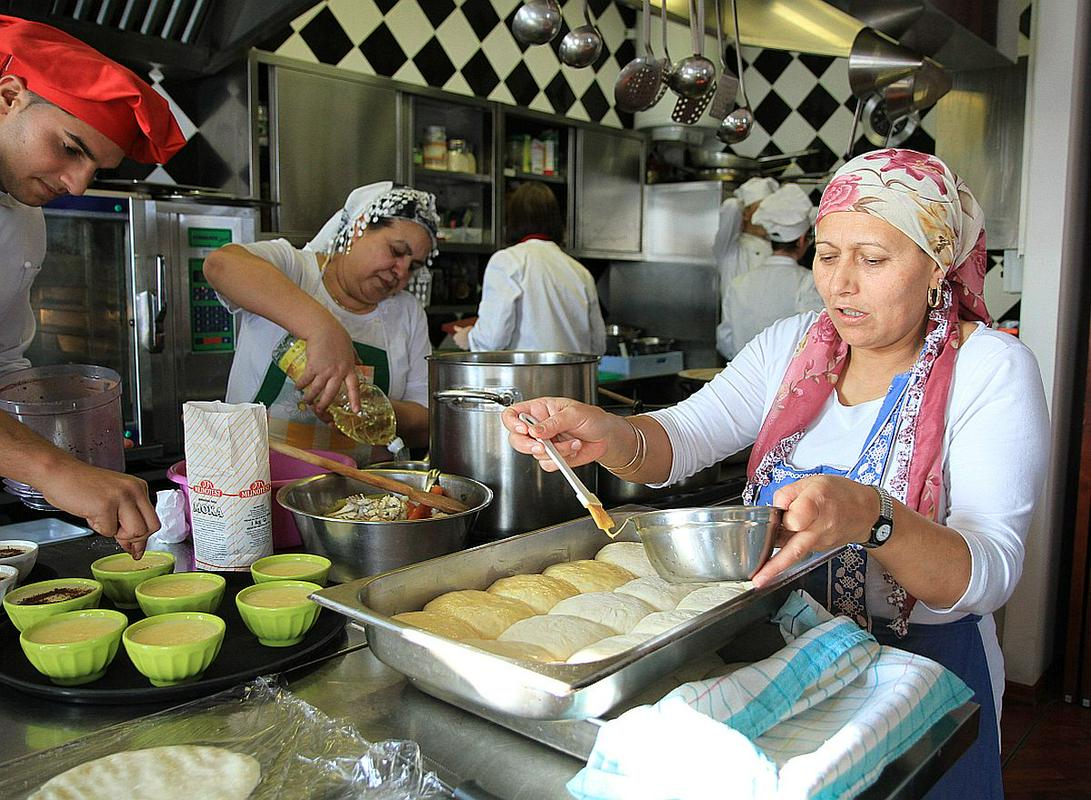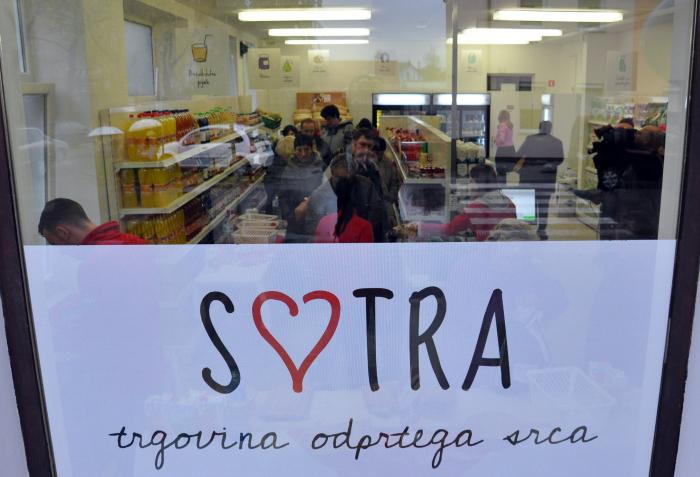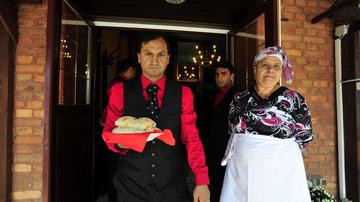
"It would show lack of seriousness were we to close the shop. After all we have spent almost two years trying to build our recognisability, trying to establish ourselves, people got used to coming to us. We managed to establish understanding relationships with our business partners, therefore – we will do our best to continue," said Ivanka Poropat, director of the Maribor social shop Sotra. In the end of August co-financing by the European Social Fund and the Ministry of Labour expired for their shop operating on the principles of social entrepreneurship. Consequently they had to let go one of the five employees, but they intend to continue on the planned path.
Simultaneously as for Sotra, the financing expired for the Romska restavracija (Romany Restaurant) project – Romani Kafenava. Štefan Simončič, the project coordinator, explained that their social enterprise opened its doors in April 2014. Since then they have been preparing for their independent operation. He emphasised that their personnel was trained, a number of promotions were being made, and their offer expanded. They have encountered some problems as well, which they tried to solve. According to Simončič the enterprise is as successful as it was expected, considering the economic situation in the city.
Community support is a must for successful social enterprises
The primary goal of social enterprises, more important than profit, is to provide permanent jobs for vulnerable population group, along with the wellbeing of the entire community. Therefore it often happens that they don't cope very well on the market once the financing expires.
Yet in spite of the initial problems, in the long-term it is easier for social enterprises to survive, claim Nena Dokuzov from the Ministry of Economy and Tadej Slapnik, state secretary in the cabinet of the president of the government, in charge of the field of social enterprises: "The fact is that social enterprises face the same challenges as other companies, but it is characteristic for them that due to their special way of operation, e.g. stable growth, taking less risks, and the fact that the profit they make is mostly invested into the company – for their activities, or for their community, they find it easier to survive also in the long term."
Of course, a company can't be successful in the long term without a good business model, an innovative product, and managerial skills, they added.
They warned that social enterprises can't succeed without the support of the local community, therefore it is very important that »the consumers recognize them, and by their purchases help them succeed. Therefore the answer to the question how to better integrate social enterprises is simple: through awareness of consumers that by purchasing services and products from social enterprises they directly contribute to their success, consequently ensuring positive social impact and directly and indirectly influencing the environment. It means everything, from jobs for the young to locally produced food of high quality, cheaper energy from renewable sources«.
Sabina Janičijević, MMC
Translated by G. K.





























































